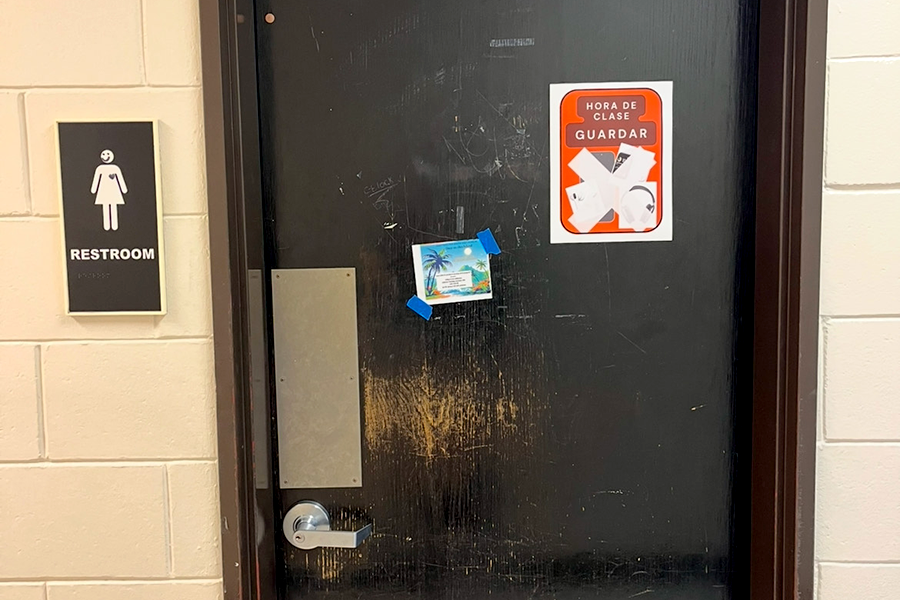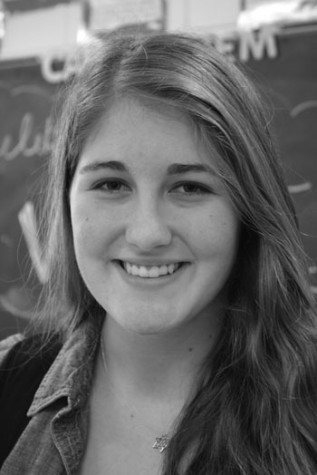Spring signals the start of standardized testing at South, as students get swamped by the SAT, ACT and AP tests. Most students feel the stress of the various tests near the end of the year, but some have more of a challenge than others.
Junior Will Ibele is just one of 78 students at South who has a 504 plan. This plan grants Ibele, and other students across the U.S., access to accommodations and modifications that help them to succeed in school.
Students with 504 plans can request accommodations such as extended testing time and adjusted due dates. These plans are available for students who have a disability that affects their activity, and the covered disabilities range from allergies to cognitive impairments.
However, it’s not always simple to get the accommodations, as junior Nico Harrington has found. Harrington learned he is dyslexic only four years ago, but hadn’t really had issues before. “Now it’s at the point where it actually is affecting my ability to do standardized tests,” said Harrington. He would like to get his disability recognized by South, and reestablish his 504 plan.
As an older student, Harrington said he finds getting help to be “a hurdle” for him. “First I have to get more tests done, and then I have go through records to find previous tests showing how I’ve changed over the years,” he said. “There’s a lot of hurdles in the school to overcome, and people to talk to that aren’t really interested in talking.”
Ibele, who received his 504 plan in elementary school, didn’t have the same challenges as Harrington, but is also faced with a set of obstacles they both share.
When Ibele took the ACT with the rest of the junior class, his counselor, who knew about his 504 plan, asked him if he wanted extra time on the test. While he got the accommodations then, Ibele also took both the SAT and ACT at other times, and he admitted that he didn’t even know how to go about requesting accommodations for them. “I should know. I took them both outside of South… and it was hellish,” he said.
Students who have accommodations in school can apply to have them on the SAT or ACT, but according to South counselor Marie Hassell, students who need them can be at a disadvantage on the test.
“You have to fill out an accommodation application, and you have to provide the appropriate documentation, and you have to provide how you’re using it in school,” said Hassell. “If you’re not using your 504 plan for something like that, it’s really hard to get it. Also, say you get your 504 plan in March and then April is the deadline for the accommodations, they want to see a lot more documentation.”
The stringent requirements can really affect students who need accommodations, especially juniors and seniors who rely on these scores to apply to colleges. “I didn’t have any accommodations,” explained Harrington, “and that’s why I think I got a score that wasn’t reflective of my actual intelligence level.”
Junior Yana Walljasper is in the process of getting a 504 plan after she got a concussion in an accident. After missing the ACT and SAT multiple times due to her health, she has decided against applying for accommodations for them. “I don’t know the exact process, but I know that it’s long, and hard, and that it’s fairly unlikely that I would be able to get them,” she said.
504 plans and accommodations are legally guaranteed to students who have proven a disability, under the Rehabilitation Act of 1972, so the question remains as to why students aren’t guaranteed accommodations by the College Board and the ACT. “High stakes testing is huge, there is so much pressure,” said Hassell. “That’s probably why ACT and SAT are so strict. I think that’s why, sadly, they make it so hard.”
However, Hassell stresses that while the accommodations may not be generous, it’s not a hard process. “It’s not a lot of work for the student, it’s work for the counselor,” she explained. “I would encourage any student [who needs to] try to apply for accommodations.” Hassell said this also applies to getting a 504 plan in general. “I think sometimes kids think it’s a hard process, but it’s really not.”







